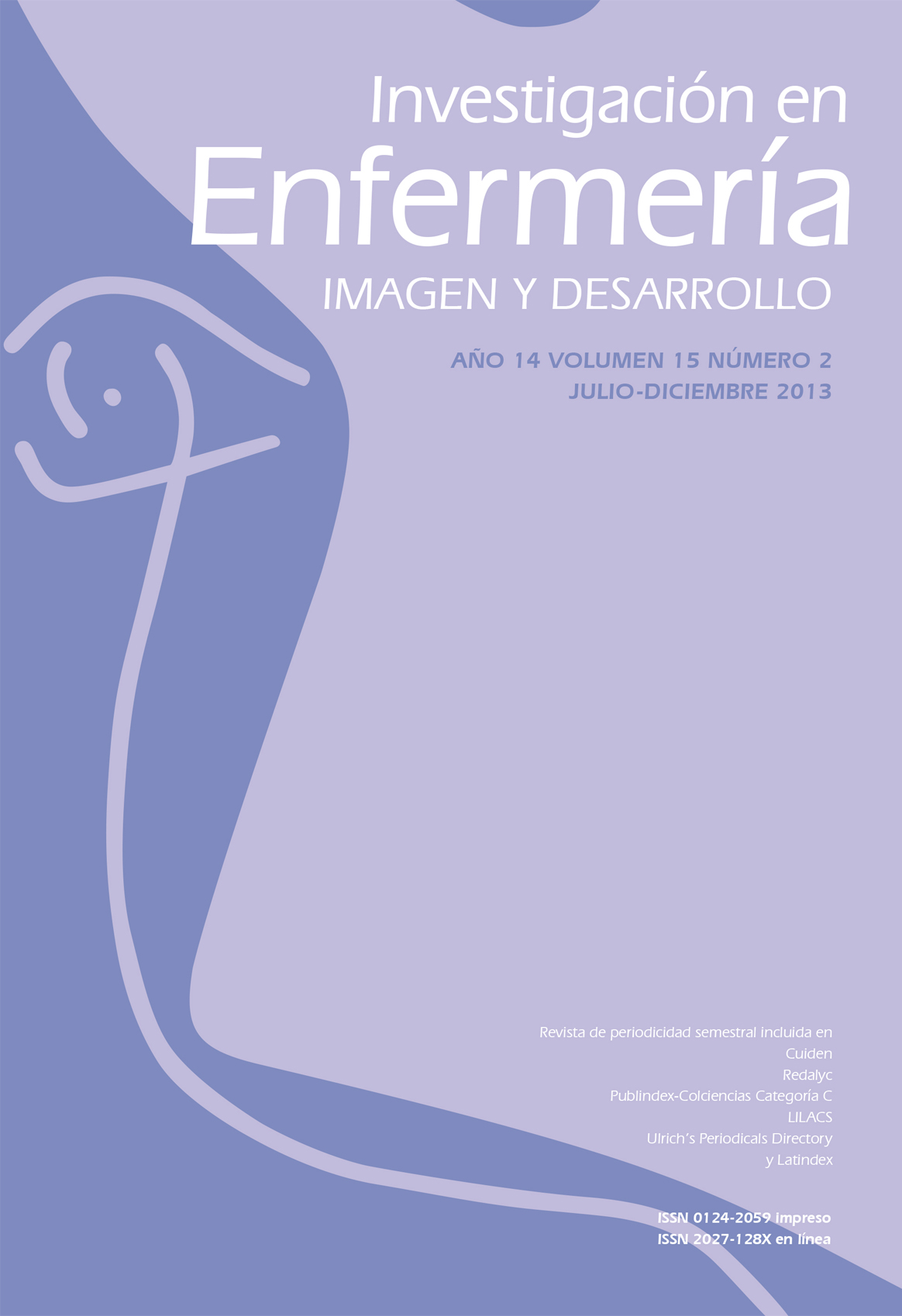Resumo
O estudo etnográfico interpretativo teve como objetivo compreender a trajetória de cuidado popular dos idosos em situação de deficiência e pobreza que moram em cinco bairros dos morros do nordeste de Bogotá. Com sete colaboradores chave realizara-se observação participante e entrevistas em profundidade. A análise foi desenvolvida seguindo a proposta de Leininger da que emerge o tema cultural: “Descobrindo os caminhos do cuidado popular dos idosos em situação de deficiência e pobreza”, e apresentase de acordo com as três fases da trajetória do cuidado: compreensão da situação atual (pagando as consequências da vida que eu tinha de tomar), tomada de decisões (tomar decisões: tramado de circunstancias) e execução do cuidado (a execução do cuidado: o vaivém entre o popular e o profissional). O tema revela as diversas possibilidades de cuidado deste grupo e mostra como é que a partir do seu contexto ambiental, sua cultura e necessidades, uma trajetória intangível é configurada onde pesa a compreensão da sua situação, as formas particulares de tomada de decisões e as práticas herdadas culturalmente que se misturam com diversos saberes cambiantes.A revista Investigación en Enfermería. Imagen y Desarrollo encontra-se registada sob a licencia Creative Commons Versão 4.0 Internacional. Portanto, esta obra pode se reproduzir, distribuir e comunicar publicamente em formato digital, sempre que dado o crédito apropriado para os autores e a Pontificia Universidad Javeriana. Permite-se citar, adaptar, remixar, transformar, autoarquivar, republicar e criar a partir do material, para qualquer fim, mesmo que comercial, sempre que indicado apropriadamente o nome do criador, provido um link para a obra original e indicado se mudanças foram feitas. A Pontificia Universidad Javeriana não retém os direitos sobre as obras publicadas e os conteúdos são responsabilidade exclusiva dos autores, os quais conservam seus direitos morais, intelectuais, de privacidade e publicidade.
O aval sobre a intervenção da obra (revisão, correção, edição, tradução, formatação) e a subsequente difusão disponibiliza-se através de licença de uso e não através de transmissão de direitos, o que representa que a revista e a Pontificia Universidad Javeriana são isentas de qualquer responsabilidade que puder se derivar de uma prática ética pobre por parte dos autores. Em consequência da proteção fornecida pela licença de uso, a revista não fica na obrigação de publicar retratações ou alterar informações já publicadas, a não ser que a errata seja decorrente do processo de gestão editorial. A publicação de conteúdos nesta revista não representa royalties para os contribuintes.


